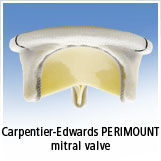Cow Valve Replacement Surgery – Bovine Valves
By Adam Pick on August 23, 2007
I will never forget my first interview with a heart surgeon.
My cardiologists – Dr. Wyman and Dr. Chaikin – had already confirmed that my aortic valve was suffering from severe stenosis and regurgitation. As they both told me, I needed a new valve and I needed it soon.

That first, surgical interview I held was with Dr. Alfredo Trento, the Director of Cardiothoracic Surgery at Cedars-Sinai Medical Hospital in Los Angeles, California.
Dr. Trento’s office was six stories up and looked across the Hollywood Hills. It was quite impressive.
“I’ve looked at your film Adam,” Dr. Trento said as he sat down in his leather chair, “You definitely need a new valve.” He continued, “Now you have some options. You can select a pig valve. You can select a cow valve. You can select an artificial or mechanical valve. Or, you can opt for your own valve using the Ross Procedure.”
I’ll never forget that moment. I gazed over at my mom who was sitting two feet away from me. “A pig valve? A cow valve?” I questioned Dr. Trento, “You mean I could have a cow valve used to replace my diseased aortic valve?”
Cow Valve Replacements Explained by Dr. Trento
Dr. Trento went on to explain that cow valves have been used for many years as valve replacements. By some, strange twist of evolutionary coincidence, our valves and cow valves are similar in tissue physiology. That makes them a frequent choice for heart valve replacement.
Although I opted for a different surgical approach – I underwent the Ross Procedure – I was always curious to know more about bovine valves and who manufactures them. It is quite an odd curiosity, I admit, but it exists. Plus, I needed to better research cow valves for my book.
- First off, you should know that bovine valves are chemically treated for transplantation from the animal to the human patient. The human body typically responds positively to this procedure because of the similarities in tissue composition.
- Second, unlike a pig valve replacement, a bovine valve uses the tissue of the cow’s heart NOT the actual structure. I better understood this when I visited Edwards Lifesciences for a heart valve manufacturing tour. Essentially, the cow valve results from a sophisticated manufacturing process in which the pericardial sack (the tough tissue sac that surrounds the heart of a cow) is collected and then processed into proper shape. Very, very, very, very interesting, right?
The disadvantage, however, is that the animal valve is not as durable as a human valve (given the lifespan of a cow) and is often more susceptible to calcification on the valve leaflets following a heart valve replacement operation.

Reports suggest that the average lifetime of a cow valve replacement is about 10 to 15 years. Although some research suggests that cow valve replacements may last over 20 years. Therefore, younger patients opting to have cow valve replacement surgery may need to have a re-operation at a future time.
I hope this helps better explain cow valve replacement surgery and bovine valve replacement surgery.
Keep on tickin!
Adam
|
Dennis Trimble says on February 6th, 2016 at 7:09 pm |
|
I’m 70 and had a Bovine mitral valve replaced 7 years ago. I recently had an eco cardiogram and my valve is as healthy as it was when it was replaced. I am now in a fitness center, have a personal trainer. In a matter of 5 weeks, I’ve improve my strength and stability I did not have at 50. I walked in the fitness center today and It |
 |
|
chet says on February 28th, 2016 at 7:10 pm |
|
my aortic mechanical heart valve is giving trouble. doc says I may need to replace it. I’m 77 years old. can i get a pig’s valve this time? |
 |
|
Kristina P says on March 6th, 2016 at 9:49 pm |
|
Hi Kenny, How did your surgery go. Yes this is a great site.I have the same exact issue also my surgeon is Dr. Girardi and I will be scheduling for April. I am 49 years old and leaning for the bovine valve. Would love to hear your success. |
 |
|
chet says on March 19th, 2016 at 1:32 pm |
|
anybody out there that has replaced a mechanical aortic valve with a pigs valve or cow valve? |
 |
|
Sylvia says on May 4th, 2016 at 4:10 pm |
|
Just had a subclavian TAVR procedure at Pepin Heart in Tampa. Went very smoothly w/very little discomfort. Went home 3 days later and no complications so far. I am 70 yr old large woman w/underlying atrial fib problem. I was nervous but it was one of the easiest surgeries that I have had. |
 |
|
SIha says on May 16th, 2016 at 6:50 pm |
|
Hello, Im am inerested in finding out more info on how long a bovine valve will last because my one & only son was born with Tetrology of Fallot & has had 3 heart surgeries, his first at 4 days old with lots of complications. & hospitilizations that followed. At around 5 & 1/2 months old was when his 2nd surgery for his complete heart repair was done. They used a bovine valve to do the replacement. He was admitted right back into the hospital after just being discharged the day before for complications & then had to endure a 3rd open heart surgery a week after the 2nd surgery. He was then put on 6 weeks of intravenous 24hr antibiotic (VENKO, that I changed myself everyday). It honestly sucked but, was said to be necessary to prevent a bloodborne infection. About 2 months after his surgery, we found out that he already had a leak in the valve & regurgitation. He is now he is 2 yrs & 3 months old. He last seen his cardiologist in Dec. 2015 & not again til December of this year(2016). My concern is, How long will a bovine valve last if it already has a leak & showing signs of regurgitation shortly after implantation. Doctors always says its ok if it has a leak & people live like that perfectly fine healthy lives with a leak un the valve but , THEY ARE NOT MY BABY…. So my question is, How long would you estimate a bovine valve with a leak & regurgitation to last? & Also, in your opinion, how often should my child be seeing his cardiologist knowing that he has a leak in his valve? |
 |
|
SIha says on May 17th, 2016 at 4:49 am |
|
How will I know when it is time to replace my son’s bovine valve?…. Are there some early warning symptoms that I should look out for & what are they?… Thank you again |
 |
|
Lyle Sharp says on July 30th, 2016 at 10:57 am |
|
On June/27/2006 I had my aortic valve replaced with a bovine valve. I am now 87. All has been well until now. I seem to have developed a heart rhythm problem. Normally it is from 60 to 90 beats. Sometimes my monitor shows as low as 39. It also shows a missed pulse or maybe even 2. It could be just too weak to register. I use 2 devises to see my heart rate. They each suggest the same thing. missing or weak. I don’t have a dr. appoint scheduled as of yet. Hope to get one soon. Any suggestions as to what causes this? |
 |
|
Sandi Curtis Goodell says on August 15th, 2016 at 4:00 pm |
|
What is the significant difference in durability of a bovine vs. porcine aortic valve replacement in a dialysis patient? I realize they don’t last as long as the common patient due to the stress put on the heart by dialysis. |
 |
|
sharon levy says on November 27th, 2016 at 1:07 am |
|
I had my aortic valve replaced ten days ago,,,,,,,,,cow………..also had an anurysim I feel so new, ready to hike in about 3 weeks, there is nothing to fear, I was tired of being sick………..in recovery I could breathe, my EKG was normal and no more blood pressure meds four times a day………..lost 6 pounds and now that my valve is normal I will be able to lose the other 30. When your valve isn’t getting oxygen we retain fluid………I am so so happy, a new life. |
 |
|
Deb says on December 6th, 2016 at 6:35 pm |
|
My mother had a bovine heart valve replacement surgery in February. Today she had an echocardiogram because she has been having shortness of breath. They say the valve is leaking. Does that mean another open heart surgery, or can they repair that arthroscopically? Just trying to get an idea of what is next, being she lives far away |
 |
|
Ron says on December 20th, 2016 at 9:17 am |
|
Your the lucky ones….I am overweight and they don’t have one for men my size..the largest is a 2cm, so I have to die within a year from now with no hope…I weigh 350, but football players are my size. I don’t understand why |
 |
|
Michael Sellers says on January 5th, 2017 at 8:53 pm |
|
I had a double bypass and aortic valve replaced with a bovine valve on October 31, 2016. (Halloween, funny, huh?) I have since had blood clots in my lung and intestinal blockage which each put me back in the hospital. My question is about Eliquis, the blood thinner I am on. I just saw the advertisement for Eliquis on tv and they said this is “not” for people with artificial heart valves. Am I on a medicine I should not be taking or are they referring to mechanical heart valves? |
 |
|
sharon levy says on February 12th, 2017 at 4:07 am |
|
I read Adams book to better prepare myself for a valve replacement, however I believe he had his almost 12 years ago. Not what I expected at all, for me, I prepared with a session of hypnosis two days prior,,,,it was extremely calming. |
 |
|
MoreVictimsComingSoon says on April 2nd, 2017 at 6:22 am |
|
Trying to decide the best option for my mitral valve replacement. I am a very active 62 tr. Old. Working out 3-5 days a week with 3 days playing full court basketball. Not really ready to give that up yet, but from all I read the mechanical valve last longest but I would have to change lifestyle eliminating bskball from my workout due to the hemoraging possibility. Or if I go with the bovine product I will probably be back on the table in 10 years because of the activities lifestyle./? I’m not thrilled with either prospect but leaning towards bovine. Any input much appreciated. |
 |
|
jjpowers53 says on July 29th, 2017 at 2:23 pm |
|
Was given a bovine valve replacement eight years ago and my heart situation probably is better than it ever has been in my life. As a young kid I could not attend regular phys-ed classes because of a heart murmur. The murmur had been with me for many years before I had a valve replacement in 2009. Now, my heart apparently is healthier than it has even been. Importantly, you don’t need to take any medications to prevent your bovine valve from being rejected by your natural immune system because a bovine valve basically has the same properties as a typical human valve; a mechanical valve can be rejected by the body whereas a bovine valve very rarely has such complications. |
 |
|
8scalar8 says on August 8th, 2017 at 11:06 am |
|
Adam. thanks for the info, like you I had severe aorta stenosis and had a bovine valve put in two weeks ago also a pacemaker, for once my heart sounds solid and even. |
 |
|
Ms.Randolph says on September 12th, 2017 at 4:27 am |
|
How long do you think a 13 yr old girl should stay in the hospital after open heart valve replacement……… She went in for a heart cath and it wouldn’t have been in her best interest for them to continue so she went to the ICU and had her conduit replaced with a contegra pulmonary valve…… |
 |
|
Edward J McVea says on February 7th, 2018 at 8:32 pm |
|
I had the cow valve done almost a year ago. Besides having a little high blood pressure which I never had before everything seems to be going pretty good. I had to be on an IV antibiotic at home with a pick line every 3 hours basically for 6 weeks. Even through the night. So a good nights rest wasn’t possible as you can imagine. Lol. I was back to work in about 8 weeks. Light duty as I am a roofer and sider by trade. But back to 100% now. So so far so good with my cow valve. |
 |
|
Edward J McVea says on February 7th, 2018 at 8:37 pm |
|
I am 43 and I just had mine done last July. It wasn’t as bad as I thought it was going to be. Probably went back to work to early. I suggest people do take the 6 months to heal properly. I seem to be doing good. A little high blood pressure and feel I get winded a little faster than I use to. But I wonder if that is because it was less than a year ago. Would love to hear how you guys are doing. And see if how I feel should be how I feel. If that makes sense. |
 |
|
James K. Burke says on June 21st, 2018 at 8:10 pm |
|
My aorta bovine cow valve is 3 years old in August, I am starting to have discomfort and pressure like I did when I had my aorta valve, I am having an Echo done on July 25th, I hope I don’t have to go thru replacement again? And if I do what are the odds of failure? |
 |
|
Maggie says on October 13th, 2018 at 3:02 pm |
|
Mine was put in 1998, that makes it 20 yrs old and still doing fine |
 |












